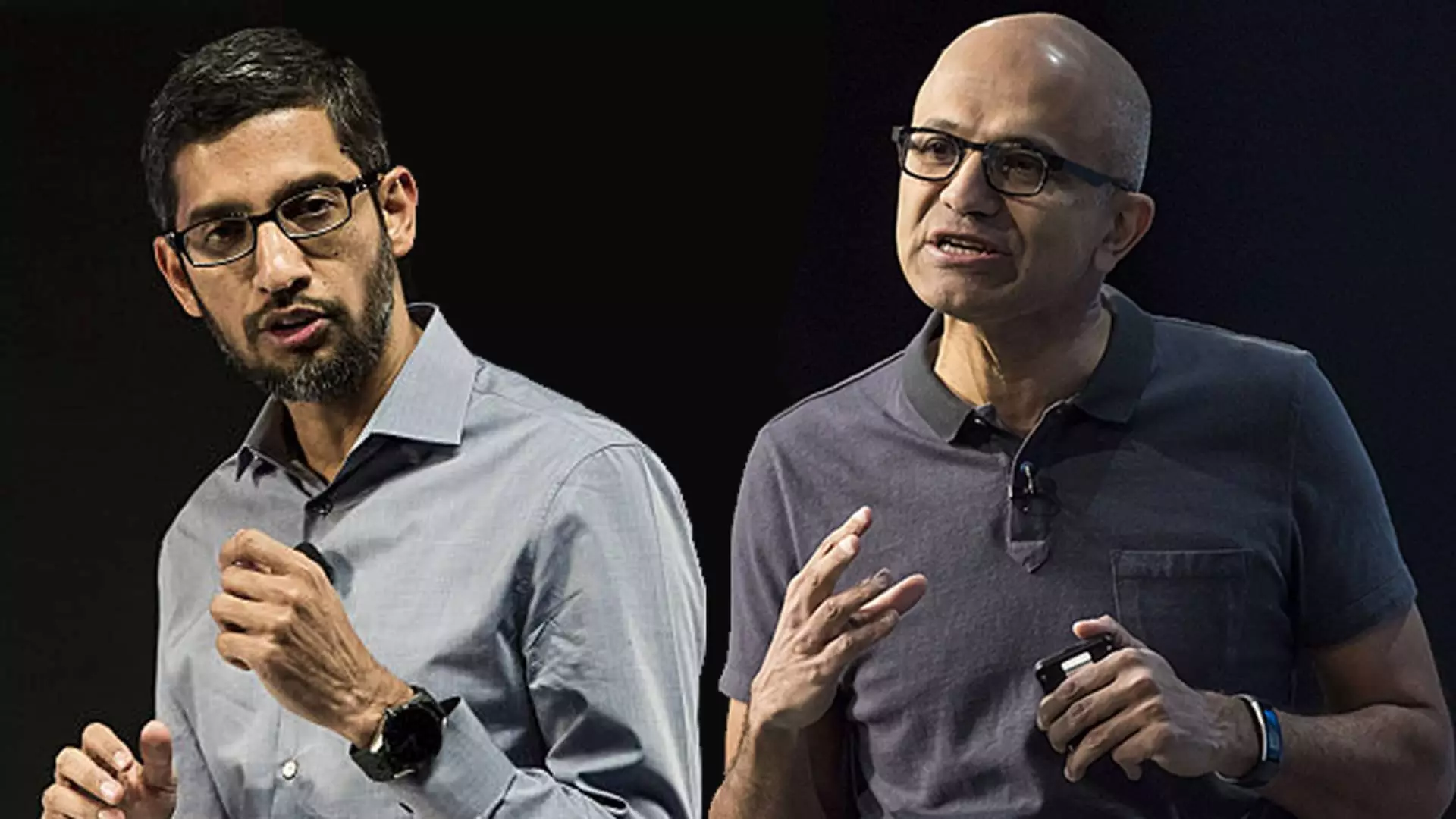As competitive dynamics in the technology sector continue to evolve, Microsoft and Google find themselves embroiled in a significant confrontation. This conflict underscores the broader concerns about market fairness and regulatory scrutiny that shape the cloud and software industry landscapes today.
A New Wave of Accusations
In an audacious move, Microsoft has openly accused Google of utilizing covert tactics—termed “shadow campaigns”—to tarnish Microsoft’s reputation among European regulators. The comments, articulated by Microsoft attorney Rima Alaily in a recent blog post, allege that Google has engaged a consultancy, the DGA Group, to manipulate public perception and political sentiment against Microsoft. This accusation is not merely a corporate tit-for-tat; it reveals underlying tensions that have permeated the relationship between two of the world’s tech titans.
The urgency in Microsoft’s assertions highlights not only a defensive posture but also a proactive strategy in combating perceived threats. Alaily’s blog post articulates that Google’s alleged activities are intended to mislead stakeholders and influence regulatory action, reinforcing the narrative that the competitive field in cloud services is increasingly contentious.
At the crux of Microsoft’s claims is the formation of the Open Cloud Coalition, an alliance purportedly aimed at advocating for fair competition within the cloud services sector across the UK and EU. Microsoft alleges that this coalition is orchestrated by Google under a veil of obscurity; namely, that it has been funded and controlled by Google, who in turn uses European cloud providers as the public face of this entity.
This strategic use of front groups illustrates a broader trend in corporate lobbying tactics, where established companies seek to influence public opinion and regulatory policy through seemingly grassroots organizations. By recruiting smaller players in the cloud landscape, Google may attempt to establish a facade of collective industry support that belies its intentions.
The current climate of heightened regulatory scrutiny surrounding Google in both Europe and the United States indicates the increasing stakes involved in these disputes. With ongoing investigations and antitrust trials, tensions are not likely to decrease anytime soon. Microsoft’s counter-attack provides it with an opportunity to portray itself not only as a victim of Google’s tactics but also as a staunch defender of fair play within the tech ecosystem.
Meanwhile, Google’s rebuttal, which emphasizes its respect for competition yet points to Microsoft’s business practices as anti-competitive, further complicates the narrative. Google’s argument stems from concerns that Microsoft’s licensing models create significant barriers for competition, effectively locking customers into specific ecosystems, which could inhibit innovation and restrict consumer choice.
The Broader Implications for the Cloud Market
The conflict also sheds light on the broader implications for the cloud market. With Amazon Web Services dominating the sector, both Microsoft and Google are in a race not just for market share, but for the very narrative that shapes consumer and regulatory perceptions. Google’s recent complaint against Microsoft regarding Windows Server licensing practices is emblematic of the strategic maneuvering that defines their competition.
Microsoft’s claims about potential financial incentives offered to members of European cloud groups further complicate the landscape. These allegations indicate a willingness by major players to disrupt coalition-building efforts that could threaten their positions. This ongoing back-and-forth illuminates the intricate web of relationships and rivalries that characterize the contemporary technology market.
Ultimately, the rivalry between Microsoft and Google highlights a continuous struggle for influence within the tech industry. As both companies navigate regulatory pressures, they also engage in tactical maneuvers aimed at reshaping perceptions of their business practices. How this conflict unfolds could set precedents that deepen the regulatory framework governing anti-competitive behavior in the tech sector and redefine the relationships between established players and emerging competitors in the cloud services marketplace. As both companies prepare for battle in this new arena, the world watches closely, aware that the outcomes will reverberate for years to come.


Leave a Reply